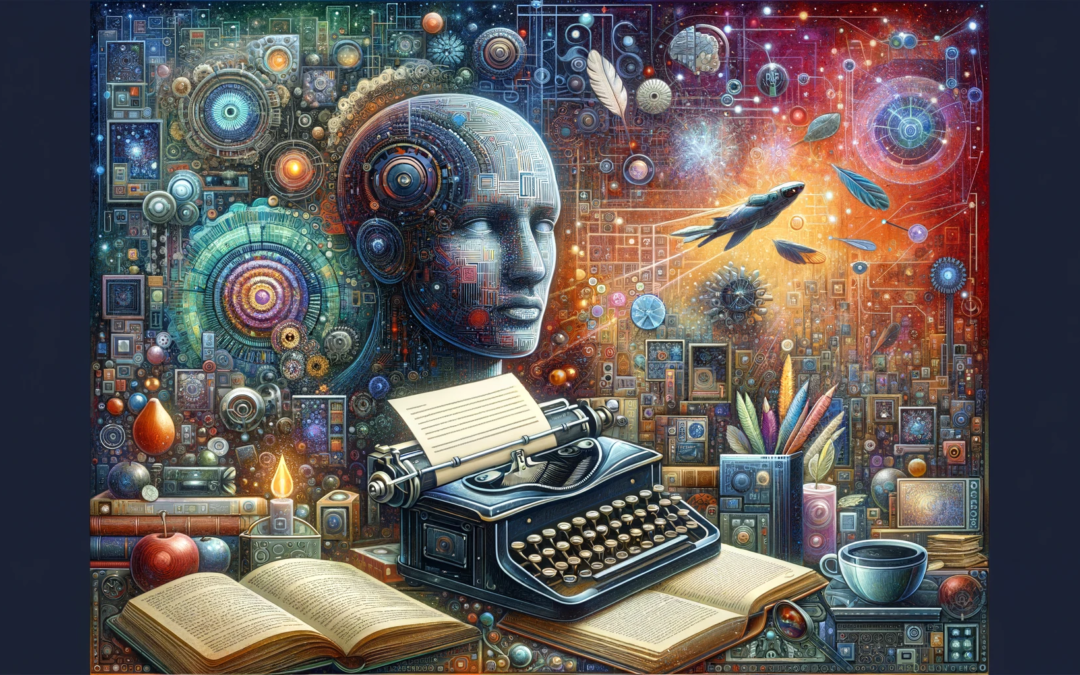Storytelling and literature have always held a special place in human culture. From ancient myths to modern novels, the power of words to transport us to different worlds and evoke emotions is undeniable. However, as technology continues to advance at an astonishing pace, a new player is entering the realm of creative writing – AI.
AI-Assisted Writing
Imagine having a personal writing assistant that helps you brainstorm ideas, structure narratives, and even edit your work. With the advent of AI, this is becoming a reality for many authors. Tools and platforms that utilize AI algorithms are now available, providing writers with valuable insights and suggestions to enhance their craft.
For example, there are AI-powered platforms that can analyze the tone and style of your writing, offering suggestions to improve clarity and coherence. These tools not only save time but also help writers refine their work to a level that was previously unimaginable.
AI in Experimental Literature
AI is not just assisting authors; it is also challenging the traditional boundaries of storytelling and narrative construction. Experimental literature, which pushes the boundaries of what literature can be, is being revolutionized by AI.
AI algorithms are being used to create interactive and generative narratives that adapt to the reader’s choices and preferences. This allows for a truly unique and personalized reading experience. Projects like “The Library of Babel” by Jorge Luis Borges and “The Institute for the Study of the Ancient World” by Nick Montfort are examples of how AI is reshaping the landscape of literature.
Personalization in Reading
AI is not only changing the way stories are written but also how they are consumed. Personalized reading experiences are now possible, thanks to AI algorithms that adapt stories to individual reader preferences.
Imagine reading a book that changes its plot based on your choices or an interactive eBook that allows you to explore different storylines. These AI-driven personalized narratives open up a whole new world of possibilities for readers, making the reading experience more engaging and immersive.
Impact on Publishing and Literary Analysis
The influence of AI extends beyond the writing process. AI tools are revolutionizing the publishing industry, from manuscript analysis to market prediction.
Manuscript analysis algorithms can now evaluate the potential success of a book based on various factors such as writing style, plot structure, and market trends. This not only helps publishers make informed decisions but also provides aspiring authors with valuable feedback.
AI is also playing a role in literary analysis and interpretation. Algorithms can analyze vast amounts of text and identify patterns, themes, and even authorial intent. This opens up new avenues for literary scholars and helps uncover hidden layers of meaning in literary works.
Ethical and Artistic Considerations
While the integration of AI in creative writing and literature brings exciting possibilities, it also raises ethical and artistic considerations.
One concern is the potential loss of human creativity and originality. Can AI truly replicate the depth and complexity of human imagination? Another consideration is the impact of AI on the diversity of voices in literature. Will AI algorithms inadvertently reinforce existing biases and limit the representation of marginalized communities?
These questions highlight the need for ongoing dialogue and critical examination of the role of AI in creative writing and literature. As AI continues to evolve, it is crucial to strike a balance between harnessing its potential and preserving the unique qualities that make literature a profound human endeavor.
Conclusion
AI is reshaping the landscape of creative writing and literature. From assisting authors in the writing process to challenging traditional storytelling boundaries, AI is revolutionizing the way we create and consume stories. However, as we embrace these advancements, it is essential to navigate the ethical and artistic considerations that arise. By doing so, we can ensure that AI remains a powerful tool in enhancing the world of literature while preserving the essence of human creativity and imagination.










